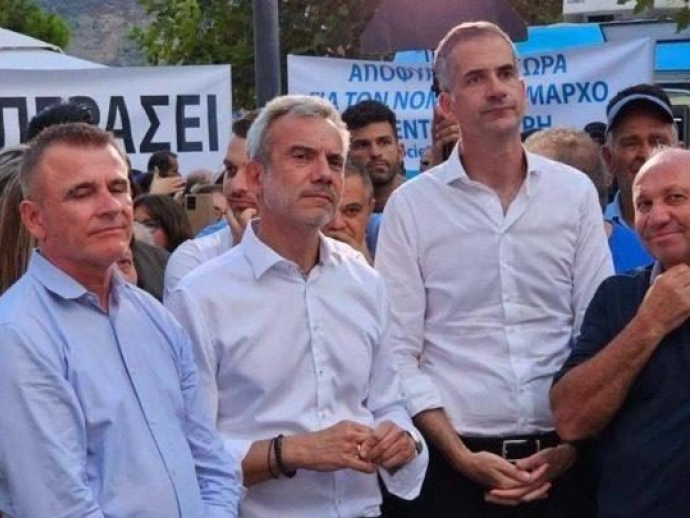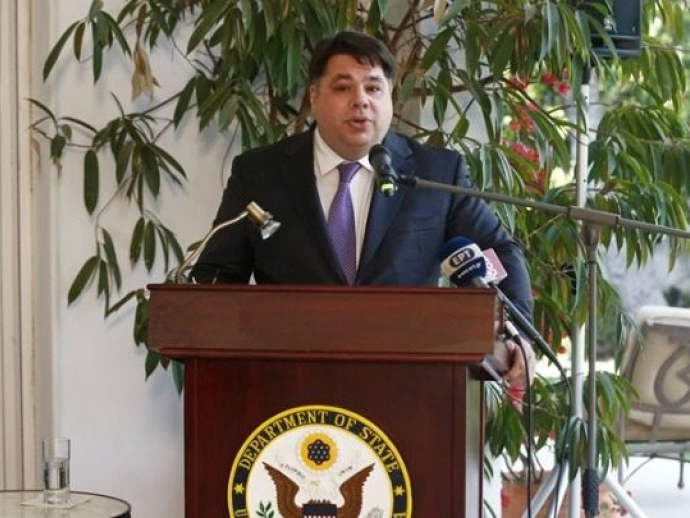As Greek elections loom, parties vie for votes of 'lost generation'
Eirini Baliaka is a case in point. A decade after entering university in the hopes of becoming a teacher, juggling jobs to pay bills as Greece faced a deep economic slump, a pandemic and cost-of-living crisis ensued, leaving her no closer to that ambition.
"What I imagined at 18 is a long way away from what I'm living at 28," the physics student said. "I don't know how we cannot be called a lost generation. I feel like I lost the game before it even began."
Wooing under 30s like Baliaka is proving a challenge for parties across the spectrum ahead of the May 21st vote, with political pledges seen as falling short for a generation that will be vital to Greece's economic outlook as its population ages.
A new electoral system means an outright winner is unlikely on Sunday, making every vote count.
Opinion polls show the ruling conservative New Democracy party ahead of the leftist Syriza overall. Among young voters, leftwing opposition parties tend to be more popular, but many remain undecided.
"It's a generation of Greeks who grew up in difficult and unprecedented conditions, which does not allow them to take things too lightly," said George Arapoglou, head of Pulse pollsters.
"They don't need someone to inform them, they need someone to convince them."
STATE OF STAGNATION
If elected, Syriza says it will abolish university entry requirements, while New Democracy has promised a 150-Euro benefit when someone turns 18.
Lamprini Rori, assistant professor of political analysis at Athens University, says that, like Baliaka, most of her students work, and that will mark their political identity in the future.
Inflation and economic growth are the issues foremost on their minds, and while 82% of young Greeks say they intend to vote, only 35% believe elections can improve things, a survey by Eteron think tank found.
"If we continue with the same government I feel it will bring me more despair. If anyone else comes, do I believe it will bring about a big change? No," Baliaka said.
Her predicament reflects a wider problem.
While the economy is forecast to grow by 2.3% this year and unemployment has eased to 10%, nearly a quarter of those under 24 are jobless, and 14% of those under 30 are, "severely materially or socially deprived," according to Eurostat, both figures more than double the EU average.
Economists say the scarring effects of lost income, skills and productivity suffered in earlier years will likely last a lifetime and could spell problems for state finances down the line, with an ageing and shrinking population worsened by an exodus of nearly 500,000 skilled young Greeks during the crisis.
"Pension income is a fiscal problem," said Vlassis Missios, an economist at the Greek Center of Planning and Economic Research. "In order to be covered, it requires a productive base that increases wages."
For many young Greeks, finding suitable work is tough.
"Greece keeps you in a state of stagnation because of the bad - or few - opportunities it gives you," Baliaka said.
SOCIETY THAT 'TAKES AND TAKES'
Greece's dire demographic problems mean young voters are only a small part of the electorate, at around 18%, but politicians cannot afford to be indifferent.
"It is a matter of political cost but also symbolically, they want to show that they care," Rori said.
"Even if they can't win the votes of the young people, they don't want to have them as opponents. There's always the danger of social unrest."
In 2008, weeks of riots over the police killing of a teenager helped topple the government.
In March, after Greece's deadliest train crash killed 57 people, most of them students, thousands of youths took to the streets in the biggest anti-government protests in years.
"We know that as young people we have to fight for our rights, for our needs, but it turns out we even have to fight for our own lives," said Evangelia Grigoriou, a 22-year-old student whose friend was killed in the crash.
"This can only cause anger and indignation. You wonder, what kind of society do I live in anyway? It doesn't offer me anything. It just takes and takes."










































































































































































































































































































































